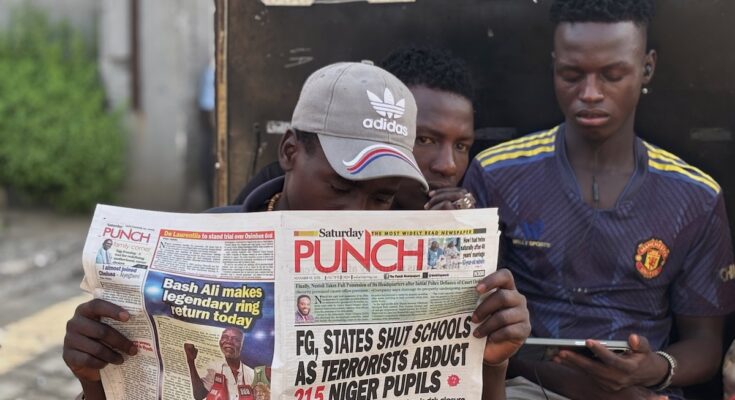More than 300 people – 303 students and 12 teachers – were kidnapped in an armed attack on a private Catholic school in Papiri, western Nigeria: The 303 students were boys and girls, boys and girls, aged between 10 and 18 years. Kidnappings carried out by armed groups for ransom are common in Nigeria and are often carried out by Islamic militias. The kidnapping that occurred in Papiri was the largest in the country’s history, even greater than that carried out by the Boko Haram group in 2014: at that time 276 girls were kidnapped.
The school that was the target of the attack is St Mary’s and is located in Niger state, bordering the capital Abuja: several armed men arrived in the early hours of Friday, while it was still night, abducting male and female students sleeping in the school facilities. More than 200 people were kidnapped inside the school, another 80 tried to escape but were found by gunmen a short time later. Nigerian police are conducting searches in the forest near the school, but so far have yielded no results. Initially it was estimated that there were 215 kidnapping victims, then the number was updated to 315.
Nigerian President Bola Tinubu has postponed several overseas trips, including attending the G20 meeting in South Africa, while the government has ordered the closure of dozens of colleges and schools as a precaution. This is the third kidnapping in a week in Nigeria: on Monday, twenty Muslim schoolgirls were kidnapped from a boarding school in Kebbi state (the deputy director of the school was killed in the attack), and on Tuesday a church was attacked in Kwara state: two people were killed, 38 kidnapped.
Amina Hassan, wife of the deputy director of Kebbi schools, was one of the two people killed (AP Photo/Tunde Omolehin)
Nigeria has been unable to limit these types of kidnappings: to try to prevent them, the government has made ransom payments illegal, but these measures have so far not been effective. In the north of the country, jihadist groups have carried out similar actions for at least a decade. In 2014 in Chibok, in northeastern Nigeria, 276 Christian and Muslim girls were kidnapped by militants from the Boko Haram group. Shortly after the kidnapping, a wide international campaign began, in which the then American first lady Michelle Obama was also heavily involved, to call for her release, using the hashtag #BringBackOurGirls on social networks. The Nigerian government’s first attempts to deal with Boko Haram failed, as did international efforts to find and free the kidnapped girls. Over ten years many fled or were released, but about 100 never returned.
Recently the issue of kidnapping and violence was also raised by the Donald Trump administration in the US, which spoke of the “persecution of Christians” and threatened retaliation against the Nigerian government.
In reality, the situation is more complex: Islamic extremist groups kidnap and attack Christians and Muslims who do not adhere to their principles. 230 million people live in Nigeria, divided almost equally between Muslims, mainly in the north, and Christians, who mostly live in the south (there are also small communities associated with traditional African cults). The number of Muslims killed in attacks by Islamic militias is far greater than that of Christians.
There are also ethnic conflicts over access to land and water, often pitting sedentary Christian farmers against Muslim nomadic herders.



